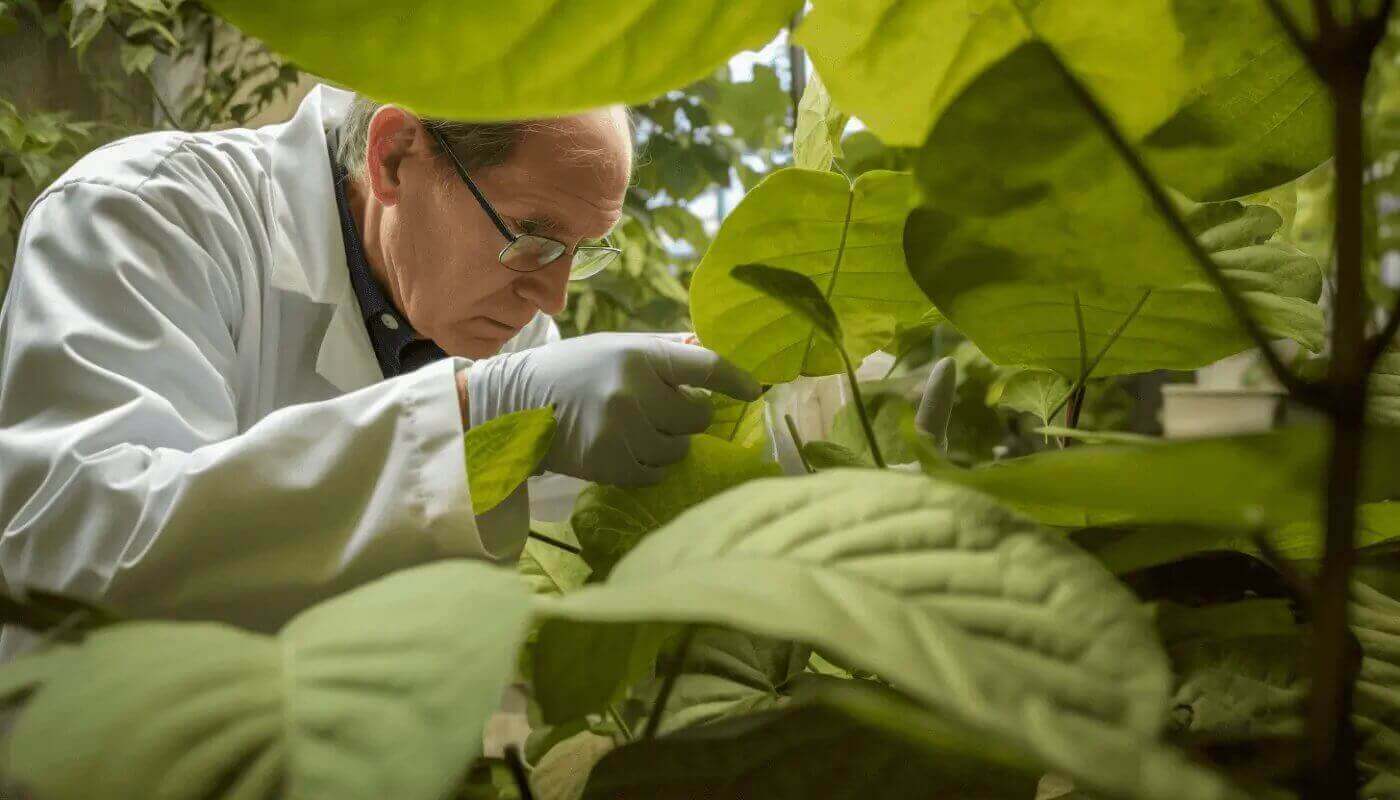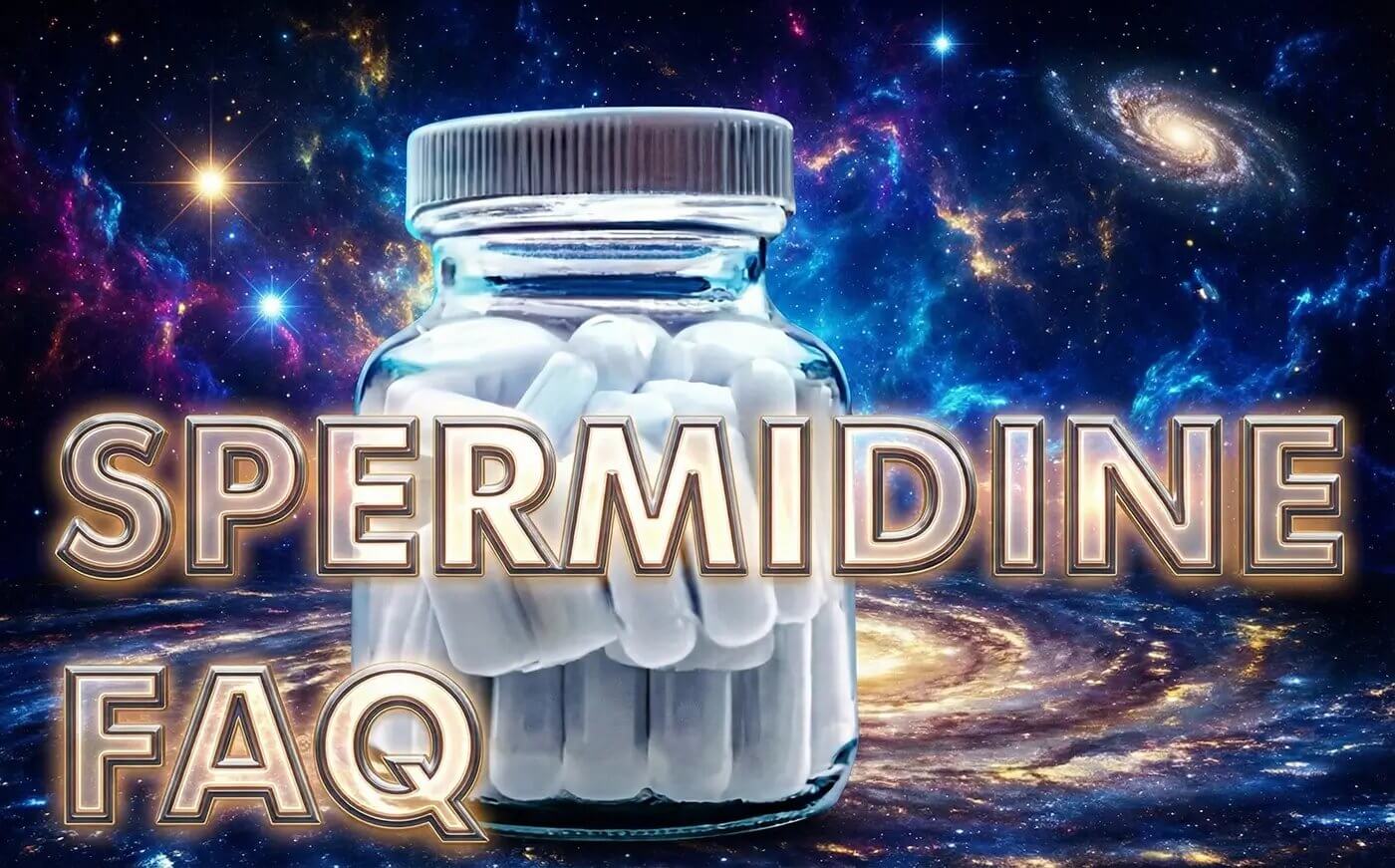Resveratrol Benefits and Side Effects: Complete Guide to Cardiovascular Health and Safety
If you're exploring natural ways to support your cardiovascular health and longevity, understanding resveratrol benefits and potential side effects is crucial for making informed decisions. This powerful polyphenol compound, found naturally in grape skins, berries, and other plants, has captured the attention of researchers worldwide for its remarkable cardiovascular protective properties and anti-aging potential.
The journey of resveratrol research began with the intriguing "French Paradox" observation that populations consuming red wine showed lower rates of heart disease despite diets rich in saturated fats. Since then, extensive scientific investigation has revealed how resveratrol works at the cellular level to support heart health, regulate blood pressure, and potentially extend healthy lifespan while maintaining an excellent safety profile for most individuals.
What Is Resveratrol and Why Does It Matter for Your Health?
Resveratrol is a natural phytoalexin, a type of protective compound that plants produce to defend themselves against environmental stressors, pathogens, and damage. This remarkable molecule exists primarily in the trans-resveratrol form, which demonstrates the highest biological activity and therapeutic potential.
You can find dietary resveratrol in various natural sources including red grape skins, grape juice, berries (especially blueberries and cranberries), peanuts, and Japanese knotweed. The concentration varies significantly between sources, with grape skins and Japanese knotweed containing some of the highest levels of bioactive trans-resveratrol.
The Science Behind Resveratrol's Protective Effects
What makes resveratrol particularly exciting for cardiovascular health is its unique ability to work through multiple biological pathways simultaneously. Unlike single-target compounds, resveratrol provides comprehensive cellular protection through various mechanisms that work synergistically to promote optimal health.
The first groundbreaking study examining resveratrol's cardiovascular effects, conducted in 2008, revealed that this compound could significantly improve blood vessel function by reducing arterial stiffness and enhancing the vessels' ability to relax. This discovery was particularly significant because arterial stiffness directly contributes to high blood pressure, a major risk factor for heart disease and stroke.
Proven Resveratrol Benefits for Cardiovascular Health
Research has identified multiple ways that resveratrol supports cardiovascular health, making it one of the most promising natural compounds for heart disease prevention and management.
Blood Pressure Regulation and Vascular Health
One of the most significant resveratrol benefits is its ability to help regulate blood pressure naturally. Clinical studies have consistently shown that individuals with hypertension who supplement with resveratrol experience meaningful reductions in both systolic and diastolic blood pressure compared to those taking placebo.
This blood pressure-lowering effect occurs through resveratrol's ability to enhance nitric oxide production in blood vessels, promoting vasodilation and improved blood flow. Additionally, resveratrol helps protect the delicate endothelial lining of blood vessels, maintaining their flexibility and responsiveness to regulatory signals.
Cholesterol Management and Lipid Profile Improvement
Research demonstrates that resveratrol can significantly improve cholesterol levels and overall lipid profiles. Studies have shown that individuals with previously elevated cholesterol levels experienced notable reductions after consistent resveratrol supplementation.
The mechanisms behind these cholesterol-lowering effects include resveratrol's ability to regulate lipid metabolism, reduce cholesterol synthesis, and enhance the removal of harmful LDL cholesterol from the bloodstream. These effects contribute to reduced atherosclerotic plaque formation and improved overall cardiovascular risk profiles.
Enhanced Blood Vessel Function
Clinical trials have revealed that resveratrol supplementation leads to improved blood vessel function in individuals with existing cardiovascular disease. This improvement manifests as better endothelial function, increased arterial flexibility, and enhanced blood flow regulation.
These vascular improvements are particularly important because healthy blood vessel function is fundamental to cardiovascular health. When blood vessels can properly dilate and contract in response to physiological needs, the entire cardiovascular system operates more efficiently.
How Resveratrol Works: Cellular Mechanisms of Action
Understanding how resveratrol produces its beneficial effects helps explain why this compound shows such promise for cardiovascular health and longevity. Research has identified several key mechanisms through which resveratrol exerts its protective effects.
Powerful Antioxidant Protection
Resveratrol functions as a potent antioxidant, eliminating harmful free radicals that can damage cells and contribute to chronic disease development. This antioxidant activity is particularly important for cardiovascular health because oxidative stress plays a central role in atherosclerosis and other heart-related conditions.
By neutralizing free radicals and supporting the body's natural antioxidant systems, resveratrol helps protect blood vessels, heart muscle, and other cardiovascular tissues from oxidative damage that accumulates over time.
Anti-Inflammatory Effects
Chronic inflammation is a key driver of cardiovascular disease, and resveratrol's anti-inflammatory properties contribute significantly to its cardiovascular benefits. Research shows that resveratrol can inhibit the production of pro-inflammatory molecules that promote arterial inflammation and plaque formation.
This anti-inflammatory action helps create a more favorable environment for cardiovascular health by reducing the inflammatory burden that contributes to atherosclerosis, hypertension, and other cardiovascular conditions.
SIRT1 Activation and Longevity Pathways
One of the most exciting discoveries about resveratrol is its ability to activate the SIRT1 gene, often called the "longevity gene." SIRT1 activation triggers various cellular processes associated with increased lifespan and improved stress resistance.
This pathway activation contributes to resveratrol's cardiovascular benefits by promoting mitochondrial health, enhancing cellular repair mechanisms, and supporting optimal metabolic function. These effects work together to maintain cardiovascular health and potentially slow age-related decline.
Clinical Evidence Supporting Resveratrol Benefits
While much of the early resveratrol research was conducted in laboratory and animal studies, an increasing body of human clinical trials provides compelling evidence for its cardiovascular benefits.
Meta-Analysis Results
A comprehensive meta-analysis examining 13 separate studies found that resveratrol supplementation was associated with a significantly lower risk of developing coronary heart disease. This large-scale analysis provides strong evidence that resveratrol's benefits translate meaningfully to human cardiovascular health.
The consistency of results across multiple studies strengthens confidence in resveratrol's cardiovascular protective effects and suggests that these benefits are reproducible across diverse populations.
Metabolic Health Improvements
Beyond cardiovascular benefits, clinical studies have shown that resveratrol can improve metabolic profiles in obese individuals. These improvements include better glucose control, enhanced insulin sensitivity, and improved lipid metabolism.
These metabolic benefits are particularly important because metabolic dysfunction often precedes and contributes to cardiovascular disease. By supporting healthy metabolism, resveratrol provides comprehensive protection against multiple risk factors simultaneously.
Understanding Resveratrol Side Effects and Safety
While resveratrol offers impressive health benefits, understanding potential side effects and safety considerations is essential for making informed supplementation decisions. The good news is that resveratrol has an excellent safety profile for most individuals when used appropriately.
Common Side Effects and Their Management
Most people tolerate resveratrol supplementation very well, but some individuals may experience mild side effects, particularly when starting supplementation or using higher doses. The most commonly reported side effects include:
- Mild headaches - Often temporary and resolve as the body adjusts to supplementation
- Digestive upset - Including nausea or stomach discomfort, typically mild and transient
- Loose stools - May occur with higher doses but usually resolves with dosage adjustment
- Skin reactions - Rare cases of mild rashes, typically in sensitive individuals
Important Safety Considerations
While serious side effects are rare, certain individuals should exercise additional caution with resveratrol supplementation. Those taking blood-thinning medications should consult healthcare providers before starting resveratrol, as it may enhance anticoagulant effects.
Pregnant and nursing women should avoid resveratrol supplementation due to insufficient safety data in these populations. Additionally, individuals with hormone-sensitive conditions should discuss resveratrol use with their healthcare providers due to its potential mild estrogenic effects.
Optimizing Resveratrol Benefits While Minimizing Side Effects
To maximize resveratrol's cardiovascular benefits while minimizing potential side effects, consider these evidence-based strategies for optimal supplementation.
Dosage Considerations
Clinical studies typically use resveratrol doses ranging from 150mg to 500mg daily, with most cardiovascular benefits observed at doses of 250-500mg daily. Starting with lower doses and gradually increasing allows your body to adjust and helps identify the optimal dose for your individual needs.
Higher doses don't necessarily provide proportionally greater benefits and may increase the likelihood of side effects. The key is finding the minimum effective dose that provides desired health benefits.
Timing and Absorption Enhancement
Taking resveratrol with meals, particularly those containing healthy fats, can enhance absorption and reduce the likelihood of digestive upset. The fat-soluble nature of resveratrol means it's better absorbed when consumed with dietary fats.
Some people find that taking resveratrol earlier in the day reduces the potential for any mild stimulating effects to interfere with sleep, though this varies among individuals.
Quality and Purity Considerations
Choosing high-quality resveratrol supplements is crucial for both safety and effectiveness. Look for products that specify trans-resveratrol content, as this is the most bioactive form.
Third-party testing for purity and potency helps ensure you're getting a product free from contaminants and containing the stated amount of active compound. Standardized extracts provide more consistent dosing than whole plant preparations.
Resveratrol vs. Other Cardiovascular Supplements
Understanding how resveratrol compares to other cardiovascular supplements helps place its benefits in context and may guide decisions about comprehensive heart health protocols.
Synergistic Combinations
Resveratrol works well in combination with other cardiovascular-supporting compounds. Trans-resveratrol vs. resveratrol comparisons show that the trans form provides superior bioactivity and should be prioritized in supplementation.
Compounds that complement resveratrol's cardiovascular benefits include quercetin, omega-3 fatty acids, and CoQ10. These combinations may provide synergistic effects that exceed the benefits of individual compounds alone.
Unique Advantages of Resveratrol
What sets resveratrol apart from other cardiovascular supplements is its multi-target approach and longevity pathway activation. While many supplements target single aspects of cardiovascular health, resveratrol simultaneously addresses oxidative stress, inflammation, metabolism, and cellular aging.
This comprehensive approach makes resveratrol particularly valuable for individuals seeking broad-spectrum cardiovascular protection rather than targeting specific risk factors in isolation.
The Future of Resveratrol Research
Ongoing research continues to unveil new potential applications for resveratrol beyond cardiovascular health, while refining our understanding of optimal usage protocols and long-term benefits.
Emerging Applications
Current research is exploring resveratrol's potential benefits for cognitive health, metabolic disorders, and cancer prevention. These investigations may reveal additional reasons to consider resveratrol supplementation for comprehensive health optimization.
Advanced delivery systems and formulation improvements may enhance resveratrol's bioavailability and effectiveness, potentially allowing for lower doses with greater benefits.
Personalized Medicine Approaches
Future developments may include personalized resveratrol protocols based on individual genetic profiles, health status, and specific cardiovascular risk factors. This precision approach could optimize benefits while minimizing any potential for side effects.
Frequently Asked Questions About Resveratrol Benefits and Side Effects
What are the main resveratrol benefits for cardiovascular health?
The main resveratrol benefits for cardiovascular health include blood pressure reduction, improved cholesterol levels, enhanced blood vessel function, reduced arterial stiffness, and decreased inflammation. Clinical studies consistently show that resveratrol can lower coronary heart disease risk and improve overall cardiovascular markers. The compound works through multiple pathways simultaneously, providing comprehensive cardiovascular protection that extends beyond single-target approaches.
What are the most common resveratrol side effects?
The most common resveratrol side effects are mild and include headaches, digestive upset, nausea, loose stools, and rare skin reactions. These side effects are typically temporary and resolve as the body adjusts to supplementation. Most people tolerate resveratrol very well at recommended doses, and serious adverse effects are extremely rare when using high-quality supplements appropriately.
How much resveratrol should I take for cardiovascular benefits?
Clinical studies typically use 250-500mg of trans-resveratrol daily for cardiovascular benefits. Starting with 150-250mg daily and gradually increasing allows your body to adjust while minimizing potential side effects. Higher doses don't necessarily provide proportionally greater benefits and may increase the likelihood of side effects, so finding your optimal dose is key.
Is resveratrol safe for long-term use?
Resveratrol has an excellent safety profile for long-term use in most healthy adults at recommended doses. Decades of research support its safety for extended supplementation. However, those taking blood-thinning medications, pregnant or nursing women, or individuals with hormone-sensitive conditions should consult healthcare providers before beginning resveratrol supplementation.
Can resveratrol help lower blood pressure naturally?
Yes, clinical studies consistently show that resveratrol can help lower blood pressure naturally. Hypertensive individuals taking resveratrol supplements experienced significant reductions in both systolic and diastolic blood pressure compared to placebo groups. This blood pressure-lowering effect occurs through enhanced nitric oxide production, improved blood vessel function, and reduced arterial stiffness.
What's the difference between trans-resveratrol and regular resveratrol?
Trans-resveratrol is the most bioactive form of resveratrol, providing superior cardiovascular benefits compared to other forms or mixed resveratrol preparations. When choosing supplements, look for products that specify trans-resveratrol content and purity to ensure maximum therapeutic potential. Understanding trans-resveratrol vs. resveratrol differences helps ensure optimal supplementation choices.
Can I take resveratrol with other medications?
Resveratrol may interact with blood-thinning medications by enhancing their anticoagulant effects. If you're taking warfarin, aspirin, or other anticoagulant medications, consult your healthcare provider before starting resveratrol. Generally, resveratrol is well-tolerated with most other medications, but professional guidance ensures safe integration with existing treatments.
How long does it take to see resveratrol benefits?
Some resveratrol benefits, like improved antioxidant status and reduced inflammation markers, may begin within 2-4 weeks of supplementation. However, more significant cardiovascular benefits like blood pressure reduction and improved cholesterol levels typically become apparent after 2-3 months of consistent use at effective doses. Long-term benefits continue to accumulate with sustained supplementation.
Making Informed Decisions About Resveratrol Supplementation
The extensive research supporting resveratrol benefits for cardiovascular health, combined with its excellent safety profile, makes it an attractive option for individuals seeking natural approaches to heart health optimization. The key to success lies in choosing high-quality supplements, starting with appropriate doses, and maintaining realistic expectations about timeline and outcomes.
While resveratrol side effects are generally mild and uncommon, understanding potential reactions and taking appropriate precautions ensures the safest possible supplementation experience. For most people, the cardiovascular benefits of resveratrol far outweigh any potential for minor side effects.
As research continues to reveal new applications and optimize usage protocols, resveratrol remains one of the most promising natural compounds for supporting cardiovascular health and healthy aging. Whether you're seeking to prevent heart disease, support existing cardiovascular health, or optimize overall wellness, resveratrol offers evidence-based benefits with minimal risk.
Remember that while resveratrol supplementation provides valuable support for cardiovascular health, it works best as part of a comprehensive approach that includes a healthy diet, regular exercise, stress management, and other lifestyle factors that promote optimal heart health and longevity.
References:
- 2008 landmark study on resveratrol and blood vessel function
- Meta-analysis of 13 studies on resveratrol and coronary heart disease risk
- Clinical trials on resveratrol's effects on blood pressure and cholesterol
- Research on SIRT1 activation and longevity pathways
- Safety and side effect profiles from clinical studies






